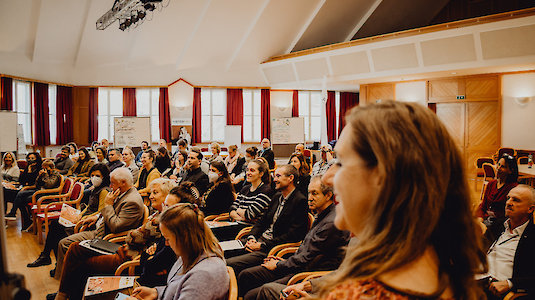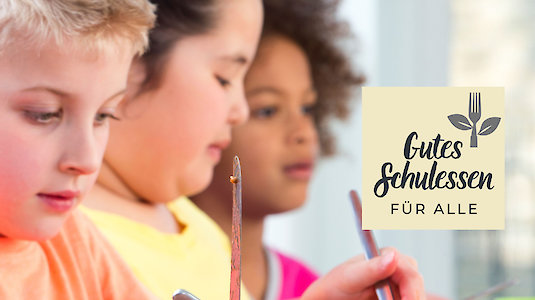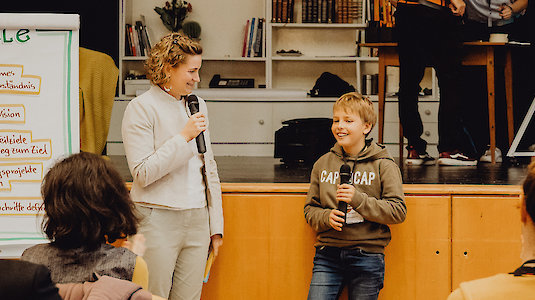Good school meals for all
What sounds like a beautiful vision is the title of a new research project of the association ZUKUNFT ESSEN. Good school food can do so much: it tastes good to the children, protects the environment and the climate, is healthy and affordable for everyone.
All this is possible, even if it is not easy to implement. The association ZUKUNFT ESSEN is currently developing a tool for committed people like you. With our online tool, you will soon be able to find the right contacts, information and best practice examples at the click of a mouse.

Everyone involved in the topic of healthy or sustainable schools knows: Lunch catering is a difficult "construction site". Many schools reach their limits in terms of space and logistics - there are neither kitchens nor adequate dining rooms, and suitable catering businesses are lacking. Food service providers often shy away from overly healthy cuisine out of concern for their business. Competition for the school is fierce. Especially in a wave of price increases, it seems impossible to increase the organic content or to focus more on quality.
At the same time, there are more and more children in full-day care and the demand for a good lunch is rising rapidly. For example, by the end of 2023, an estimated 130,000 more portions will be needed daily across Austria. Who is responsible for this issue is completely unclear in many places, and communication is not very satisfactory.
The Austrian Ecolabel for schools offers the opportunity to make important changes in the area of food. An internal school nutrition team is responsible for the continuous improvement of the offer. Plant-based meals made from regional, seasonal ingredients are moving into the limelight. Organic food is to be offered more frequently. That this can succeed is shown by many examples from all over the country, for example the Rose, a private upper secondary school in the tobacco factory in Linz.

Good school food for all is possible. Manuel Schätzer, federal coordinator of SIPCAN, and the agroecologist Anna Strobach are also convinced of this. The association they founded, ZUKUNFT ESSEN, is both a competence centre and an interface. In the course of the current research project, the ZUKUNFT ESSEN association is developing an online tool, a kind of navigation system, together with more than 100 stakeholders. It is aimed at all those who want to leave the status quo of their school catering behind and do not know exactly how to approach this complex topic.
You can contribute to the development of the tool! Tell us about your challenges. This way we can pack exactly what people like you need on the journey. It takes 5-8 minutes to answer the questions. As a thank you for your time, we will answer your most pressing question, which you tell us in the questionnaire. Here's how to get to the survey.
